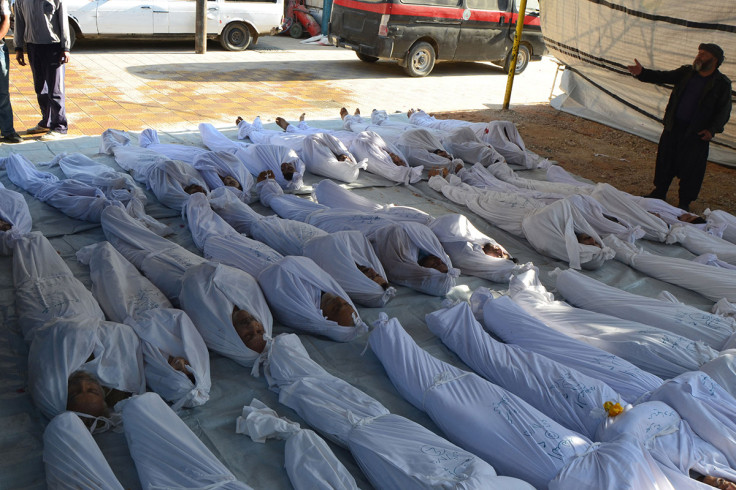YouTube 'deleted war crime evidence in Syria'
Elliot Higgins of Bellingcat says vital evidence has been removed by the Google-owned platform.
YouTube has come under fire for deleting video evidence of potential war crimes in Syria in its attempts to remove terrorist content and propaganda from the video sharing platform. Thousands of videos have been uploaded to YouTube in the last seven years giving have been used by investigative journalists to piece together the truth about atrocities in the Middle Eastern conflict.
One such journalist, Elliot Higgins, of the award-winning Bellingcat network, said many videos that provided a "rare insight and rare documentation to what is unfolding in Syria" had been removed.
Higgins told Sky News he had used YouTube videos "to prove the use of cluster bombs, incendiary bombs, barrel bombs, [as well as] the targeting of hospitals and other civilian structures" during the bloody civil war.
"The playlists were being used in various reports by different organisations, as well as being used to share information about war crimes with justice and accountability organisations. Their deletion seriously impacts our work on justice and accountability," he added.
"We've been working with the Syrian Archive to preserve as much as possible, but it's a fraction of the videos from the conflict, and it's far less accessible than YouTube."
A spokesperson for YouTube told Sky News the platform was making every effort to improve the review process that led to video take downs.
YouTube, which is owned by Google, has come under severe pressure in the last year after pro-jihadi and other extremist propaganda videos were revealed to be published on the site with some of those content producers even earning ad revenue for their uploads. "With the massive volume of videos on our site, sometimes we make the wrong call," the spokesperson added.
"When it's brought to our attention that a video or channel has been removed mistakenly, we act quickly to reinstate it." Sky News said it understands that YouTube is trying to recover Higgins's playlists.
But Higgins added: "There are many channels which have uploaded hundreds, if not thousands of videos over the last six years, and if just a few of them violates the new YouTube rules then the channels are suspended.
"In some cases the people who were running the channels were killed or have been displaced so they don't have access to the channel to challenge these suspensions, so all these videos are lost."

© Copyright IBTimes 2025. All rights reserved.





















